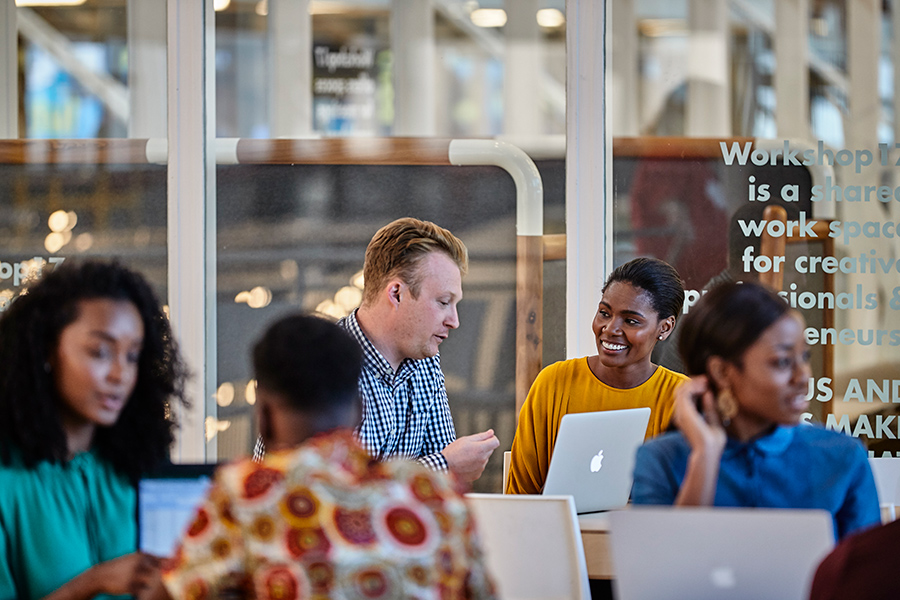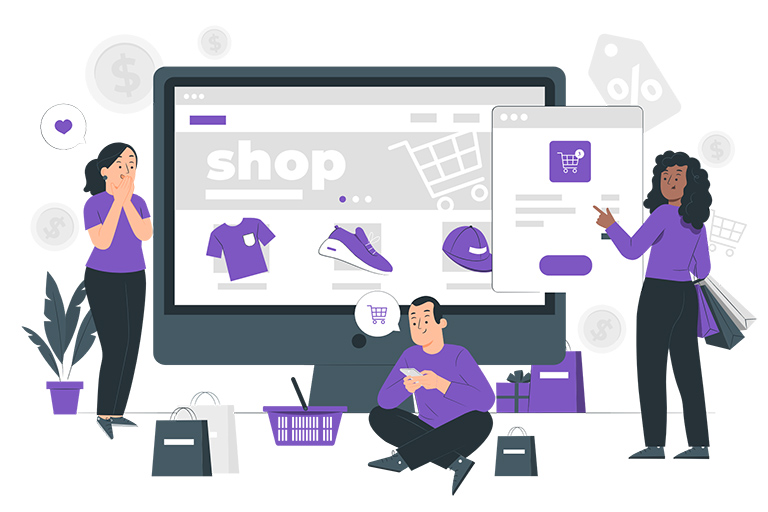Why E-Commerce Should Embrace The Circular Economy
Both reverse logistics and the circular economy are becoming more crucial in helping e-commerce companies hit their sustainability goals.
Sustainability is an integral part of doing business today, thanks to public demand for eco-friendly goods and services, and the need to comply with ESG regulations in many economies. For the logistics sector, this is a great opportunity to reimagine processes and enhance efficiencies for minimum carbon emissions. The circular-economy model is a great guiding principle.
What is the circular economy?
Instead of the linear-economy idea of production, consumption, and disposal, the circular economy is based on more sustainable ways of doing business through sharing, reusing, recycling and refurbishing products.
It offers an opportunity to integrate sustainable principles into the operations of the logistics business itself. One exciting circular-economy trend is in the area of reverse logistics – the movement of goods from customers back to sellers or manufacturers.
The importance of reverse logistics
Reverse logistics is a part of the circular economy, and it is a large market. A recent BrandEssence report estimated the size of the global reverse-logistics market at $614.2 billion in 2022, and saw it growing at 6.6% a year.
With reverse logistics, you can extend the life of every product.
The approach aligns with the principles of the South African Bill of Rights, which states that everyone has the right “to an environment that is not harmful to their health or wellbeing; and to have the environment protected, for the benefit of present and future generations.” The government has even adopted a Circular Economy Guideline, with a focus on the waste sector.
There is growing agreement that it is time for logistics providers to embrace these principles, and many are – right across the African continent.
What is the circular economy?
Instead of the linear-economy idea of production, consumption, and disposal, the circular economy is based on more sustainable ways of doing business through sharing, reusing, recycling and refurbishing products.
It offers an opportunity to integrate sustainable principles into the operations of the logistics business itself. One exciting circular-economy trend is in the area of reverse logistics – the movement of goods from customers back to sellers or manufacturers.
The importance of reverse logistics
Reverse logistics is a part of the circular economy, and it is a large market. A recent BrandEssence report estimated the size of the global reverse-logistics market at $614.2 billion in 2022, and saw it growing at 6.6% a year.
With reverse logistics, you can extend the life of every product.
The approach aligns with the principles of the South African Bill of Rights, which states that everyone has the right “to an environment that is not harmful to their health or wellbeing; and to have the environment protected, for the benefit of present and future generations.” The government has even adopted a Circular Economy Guideline, with a focus on the waste sector.
There is growing agreement that it is time for logistics providers to embrace these principles, and many are – right across the African continent.

How e-commerce companies can adopt reverse logistics
The rise of e-commerce, driven by the pandemic, has become a key driver of small business and the logistics sector.
The United States Department of Commerce International Trade Administration forecasts that Africa will surpass half a billion e-commerce users by 2025, with some predicting the continent’s e-commerce market will be worth $46 billion by then.
With e-commerce as one of the greatest frontiers of opportunity in African trade, it’s crucial for e-commerce companies to start adopting reverse logistics to ensure they’re leaving a positive impact on the environment.
Here are five ways e-commerce companies can implement reverse-logistics:
1. Waste management
Waste management is a significant part of the reverse-logistics industry. This can take the form of food banking, where excess food not sold (by retailers, hotels and restaurants) is returned to the value chain for redistribution to the needy. The food waste can also be collected for reprocessing into biomass energy.
At FedEx, we have found opportunities to minimize food and packaging waste through our collaboration with Liviri, which ensures shipped food remains fresh, and that packaging can be easily reused and recycled.
2. Product cascading
Another reverse-logistics application is in product cascading. This is where materials, components and peripherals associated with a product are kept in circulation for as long as possible. They are repaired and exchanged, and new designs are created that still work with existing designs.
3. Refurbishment
Refurbishment is another new service that manufacturers offer. It encourages customers to send in their used products for remanufacture, extending their lifespan to be used again by new and existing customers.
4. Recycling
Businesses should also look to create channels for recycling or waste management, even when a product has reached its due date.
Brands can, for example, incentivize customers to donate used items for recycling or reprocessing. This is especially important with e-waste, which can often be easily recycled. It’s, in fact, becoming the focus of emerging South African government policies.
5. Returns process
Finally, there is the fundamental offering of a clear, simple returns process, where customers can easily return unwanted goods for replacement or refund. These returned goods then become prime candidates for recycling or resale.
To facilitate this process, we at FedEx have designed packaging like our Reusable Padded Pak to be easily repurposed for product returns.
The rise of e-commerce, driven by the pandemic, has become a key driver of small business and the logistics sector.
The United States Department of Commerce International Trade Administration forecasts that Africa will surpass half a billion e-commerce users by 2025, with some predicting the continent’s e-commerce market will be worth $46 billion by then.
With e-commerce as one of the greatest frontiers of opportunity in African trade, it’s crucial for e-commerce companies to start adopting reverse logistics to ensure they’re leaving a positive impact on the environment.
Here are five ways e-commerce companies can implement reverse-logistics:
1. Waste management
Waste management is a significant part of the reverse-logistics industry. This can take the form of food banking, where excess food not sold (by retailers, hotels and restaurants) is returned to the value chain for redistribution to the needy. The food waste can also be collected for reprocessing into biomass energy.
At FedEx, we have found opportunities to minimize food and packaging waste through our collaboration with Liviri, which ensures shipped food remains fresh, and that packaging can be easily reused and recycled.
2. Product cascading
Another reverse-logistics application is in product cascading. This is where materials, components and peripherals associated with a product are kept in circulation for as long as possible. They are repaired and exchanged, and new designs are created that still work with existing designs.
3. Refurbishment
Refurbishment is another new service that manufacturers offer. It encourages customers to send in their used products for remanufacture, extending their lifespan to be used again by new and existing customers.
4. Recycling
Businesses should also look to create channels for recycling or waste management, even when a product has reached its due date.
Brands can, for example, incentivize customers to donate used items for recycling or reprocessing. This is especially important with e-waste, which can often be easily recycled. It’s, in fact, becoming the focus of emerging South African government policies.
5. Returns process
Finally, there is the fundamental offering of a clear, simple returns process, where customers can easily return unwanted goods for replacement or refund. These returned goods then become prime candidates for recycling or resale.
To facilitate this process, we at FedEx have designed packaging like our Reusable Padded Pak to be easily repurposed for product returns.

Opportunities in Africa for reverse logistics
For small businesses in Africa, there are significant benefits to expanding their reverse logistics offerings. According to a recent study, businesses felt that a strong reverse-logistics offering led to a stronger brand image, improved customer satisfaction, and higher profitability.
The recent ratification of the African Continental Free Trade Agreement (AfCFTA) offers a powerful opportunity to build Africa’s digital infrastructure, and its regulatory framework, to facilitate e-commerce opportunities for business owners.
However, as we commit to e-commerce, it may be useful to think of it as part of an ongoing relationship between customers and clients, involving logistics and reverse logistics. As the circular economy takes root, e-commerce will stop being a one-way transaction – and become a two-way interaction.
For small businesses in Africa, there are significant benefits to expanding their reverse logistics offerings. According to a recent study, businesses felt that a strong reverse-logistics offering led to a stronger brand image, improved customer satisfaction, and higher profitability.
The recent ratification of the African Continental Free Trade Agreement (AfCFTA) offers a powerful opportunity to build Africa’s digital infrastructure, and its regulatory framework, to facilitate e-commerce opportunities for business owners.
However, as we commit to e-commerce, it may be useful to think of it as part of an ongoing relationship between customers and clients, involving logistics and reverse logistics. As the circular economy takes root, e-commerce will stop being a one-way transaction – and become a two-way interaction.
***


















 The Latest
The Latest